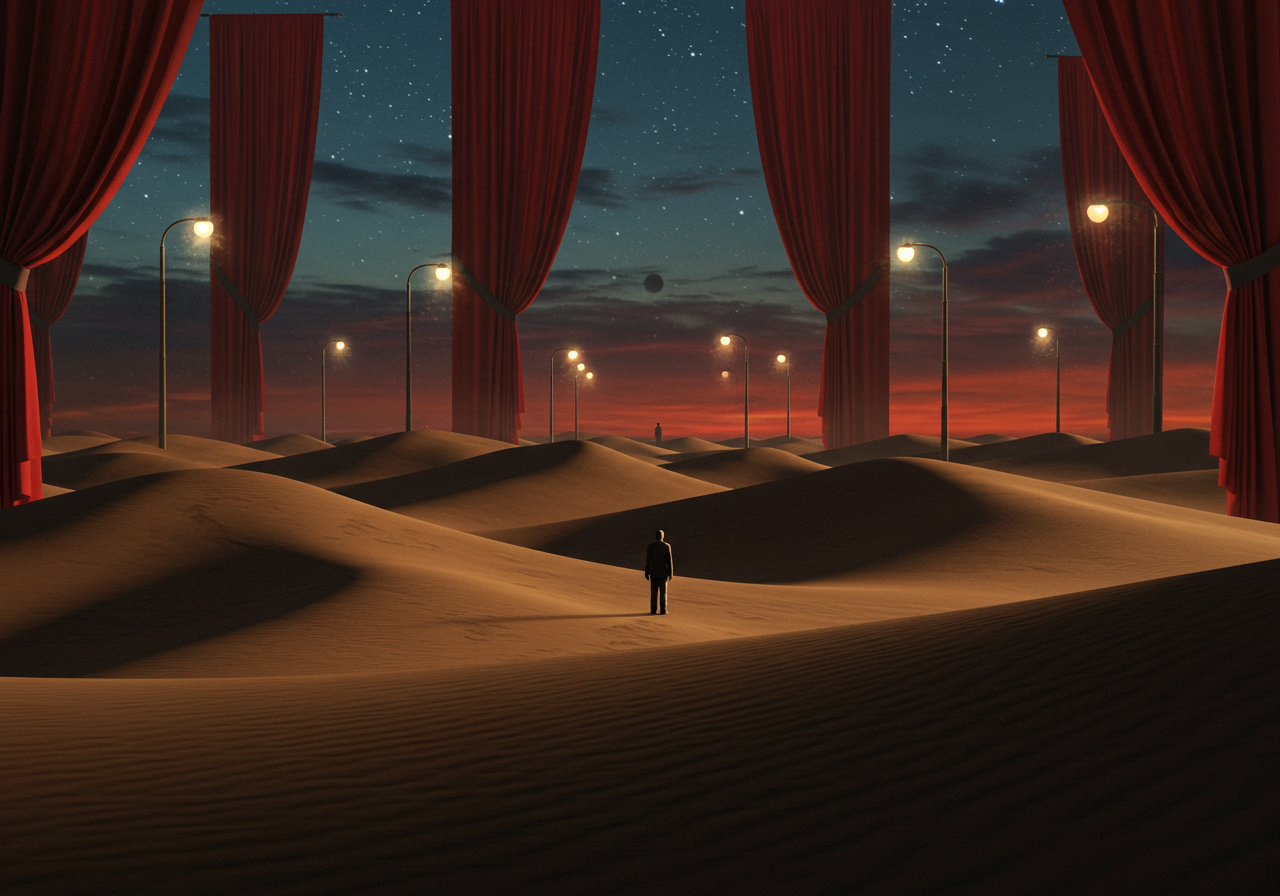David Lynch

My journey with David Lynch began with Dune. I'd fallen in love with Herbert's books and Kyle MacLachlan's portrayal of Paul Atreides.
When Twin Peaks was announced, I was ready for whatever strange, liminal world Lynch might create. I still remember catching fragments of TV promos on my old cathode ray set—the kind with actual dials. Before I'd even seen the show, it started weaving itself into my dreams. When I left for boarding school, I made my father promise to record each episode, terrified I'd miss something. Not the mystery as such—I don't remember feeling the need to solve it. It was the world I didn't want to lose: Agent Cooper, the cherry pies, and the strange warmth of something unsettling yet familiar.
My little patch of wall next to my dorm bunk became a shrine: Twin Peaks posters, magazine clippings, and an inexplicable (at least to others) collection of gloves—a teenage nod to the FBI I suddenly wanted to be a part of I suppose. Looking back, it was odd, endearing, and completely earnest. It was my first experience of true fandom, pieced together in the pre-internet era. I wasn't trying to solve or even fully understand anything. I just wanted to collect, display, and revel in the strangeness that, somehow, felt like home.
Maybe that's because I felt like that then—a collection of strange pieces, struggling to articulate myself into a cohesive whole. Lynch's work seemed to permit that ambiguity. He didn't just depict strangeness; he showed how it could coexist with beauty and meaning.
That's part of Lynch's gift. He permits, challenges, and maybe even teaches us to resist the urge to pin meaning down. His stories are alive in the spaces between teller and receiver.
Kyle MacLachlan captured this perfectly in his reflections on Lynch. He spoke about how Lynch didn't trust words because they have a way of pinning things down—of closing off the openness that fuels creativity. Reading that, I pictured words pinned like butterflies in specimen cases. Beautiful, but robbed of the ability to transform. Lynch trusted images, sound, and feeling to create meaning. MacLachlan's recollection of Lynch directing with phrases like "more wind" wasn't about being cryptic—it was an invitation to discover. For the actors, for the audience, for anyone willing to engage with the work.
These moments of unspoken understanding stay with you. They shift how you move through other stories, other spaces, and even other parts of life.
My relationship with Lynch's work hasn't been predictable. Lost Highway clicked (and haunted) immediately, while Blue Velvet—watched too young—disgusted me in ways I couldn't process. The first time I saw Mulholland Drive, I left cold. But The Return? It was exactly what I needed it to be, even though it wasn't at all what I thought I wanted.
I see now, after reading Kyle's words, how I've been chasing this same magic in immersive theatre. Shows like Sleep No More teach you—without telling you—that you should follow the nurse through a doorway or linger in an empty ballroom. They invite you to break barriers, to let intuition guide you into the story.
And more recently, I've seen it in how I try to parent. Watching my toddler engage in uninterrupted discovery is perhaps my greatest joy. When I resist the impulse to explain or over-define, he finds connections I'd never imagine and I see him - somehow see his inner world lighting up.
Lynch's refusal to explain his work isn't about deliberate obscurity; it's about protecting the living quality of ideas. The mystery of Laura Palmer's last dream or the box in Mulholland Drive is free to shift or stick, depending on how and when you encounter them.
When we try to define Lynch's stories, we miss the point. They aren't puzzles to solve but experiences to live through.
This philosophy—trusting stories to transform themselves and us—profoundly shapes how I read and write about stories here in the Night Wing. Whether exploring experimental fiction, immersive theatre, or picture books, I'm drawn to moments where understanding arises through experience, when stories teach us their own language if we let them remain strange enough to speak.
Thank you, David. I don't know if you made me or found me like this. Either way, both ways, I'm grateful. You were an extraordinary artist, and your impact—on the people you worked with and on audiences like me—is a legacy that breathes.